On the morning of July 15, 2025, Master De Zhao (德昭師父), the respected second monastic disciple of Master Cheng Yen at the Jing Si Abode in Taiwan, passed away peacefully at the age of 91. A pioneering disciple who helped build the foundation of the spiritual community, his life was a testament to the principles of diligence and self-reliance. In her final act of service, she became a Silent Mentor, donating her body to medical education, ensuring her contributions would continue long after her passing.

A Path of Unwavering Resolve
Master De Zhao's journey to monastic life was one of quiet determination. Given up for adoption as a child, she was raised with great affection by her adoptive father and grandmother. When she later expressed her wish to become a nun, her adoptive father gave her his blessing with a solemn piece of advice: "This path, if you choose to walk it, you must walk it to the end. Don't turn back halfway." It was a promise she would honor for the rest of her life.
Her path crossed with Master Cheng Yen's in 1963 at the Benevolence Temple. She was immediately struck by the future founder of Tzu Chi, recalling how Master Cheng Yen seemed to glide as she walked and how she would rise at two or three in the morning to pay respects to the Buddha. One night, feeling unwell, Master De Zhao was moaning softly when Master Cheng Yen heard her. Hearing this, Master Cheng Yen went and brought a cup of Great Compassion Water (water spiritually blessed after chanting the Great Compassion Mantra) and said gently, "Drink slowly, don't drink too much." This simple act of kindness left a lasting impression.
After being ordained in 1965, Master De Zhao found her way to the newly established Jing Si Abode. In 1966, just one month after the Tzu Chi Foundation was formed, Master De Ci (Master Cheng Yen's first disciple) invited her to stay. "You should stay here and teach us how to do things," she said, recognizing her capability. With that, Master De Zhao began her life at the Abode, a life she would dedicate to service and practice.
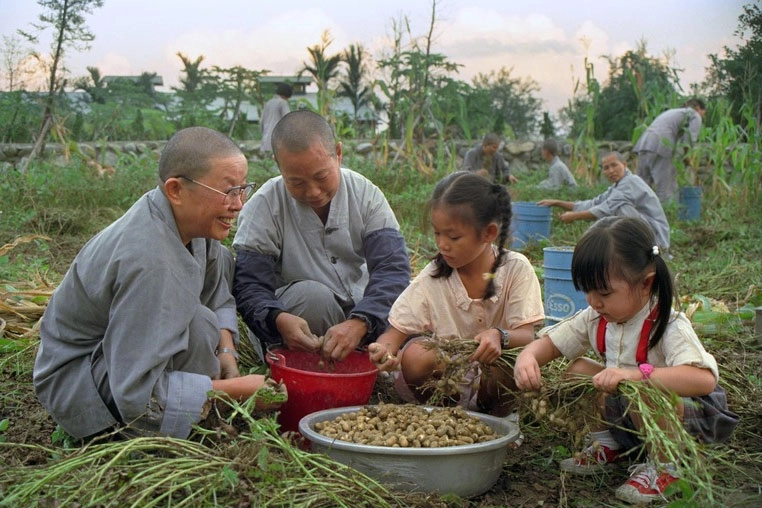
Cultivating a Foundation of Diligence
Life at the Abode in its early days was arduous. The monastics lived by the creed, "a day without work is a day without food," and Master De Zhao was at the forefront of this effort. She recalled the toil of managing the rice paddies, which required checking the water levels in the middle of the night. Even on the first and fifteenth of the lunar month, when Master Cheng Yen did not wish them to go into the fields (due a busier schedule), they would tiptoe out, change into rain boots, and return just as quietly.
When the work of tending the paddies became too taxing, they switched to crops that didn't require irrigation. This brought new challenges. "We had to kneel on the ground to pull weeds," she remembered. Without gloves, their hands were raw, and their fingernails would turn purple and eventually fall off from the strain. When they harvested corn, the best ears were sold, while the monastics would boil the smaller ones for their dinner. For days on end, their meals consisted of corn, a simple but fulfilling existence.
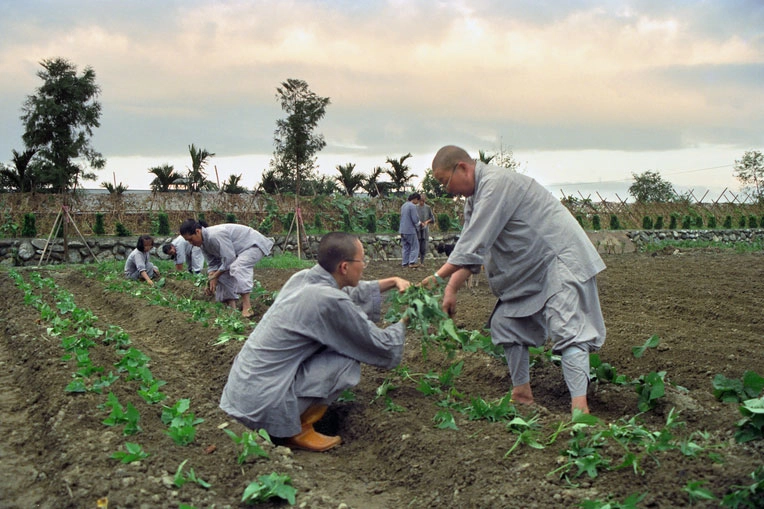
A Lifetime of Action
Master De Zhao’s commitment to work never wavered, even as age began to limit her body. "I really love to work!" she often said. "Even though I can't bend my waist or squat down anymore, I can still do a little. I never want to rest."
In 2024, after Typhoon Kong-rey stripped the leaves from the cypress trees at the Abode, the monastics decided to distill them to create fragrant oils. Master De Zhao, having just returned from a hospital stay, immediately joined the effort, sitting with a pair of scissors to help. When others would playfully suggest it was time for her to retire, she would reply with conviction, "How can I? I must dedicate my life until its very end. How can I retire!"
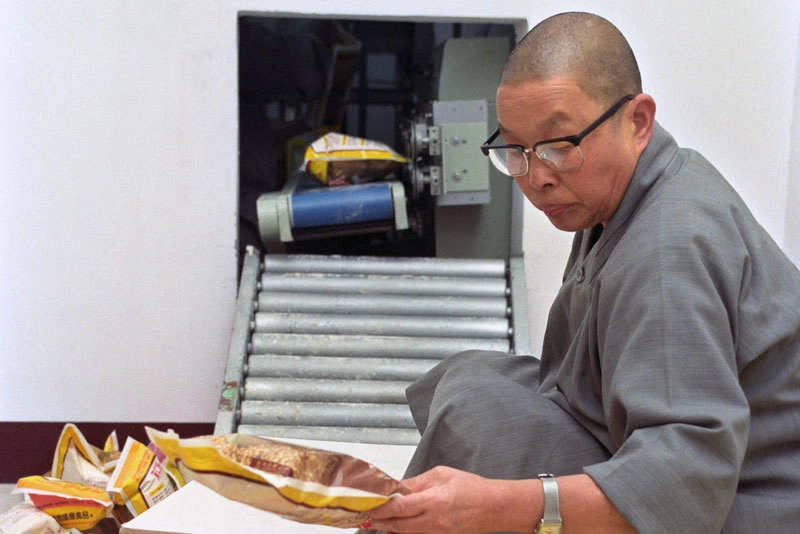
In recent years, the Abode began cultivating Sacha Inchi nuts. The shells were incredibly hard to crack, and peeling them would make one's fingers ache. Yet, Master De Zhao persisted. "It hurts, but I still have to peel them," she would say. "At this age, this is what I can do."
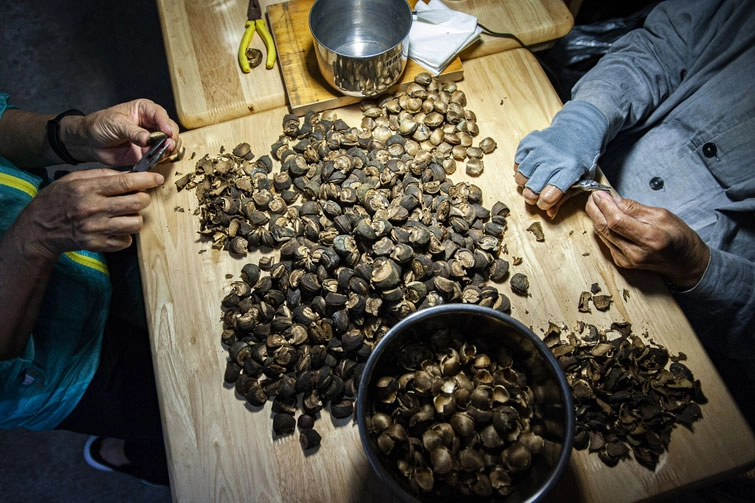
A Legacy of Gratitude and Respect
In her final years, though she used a wheelchair, Master De Zhao remained an active and cherished presence. She would often position herself near the large bamboo coin bank in the corridor, and whenever she saw someone make a donation, she would press her palms together in a gesture of gratitude.
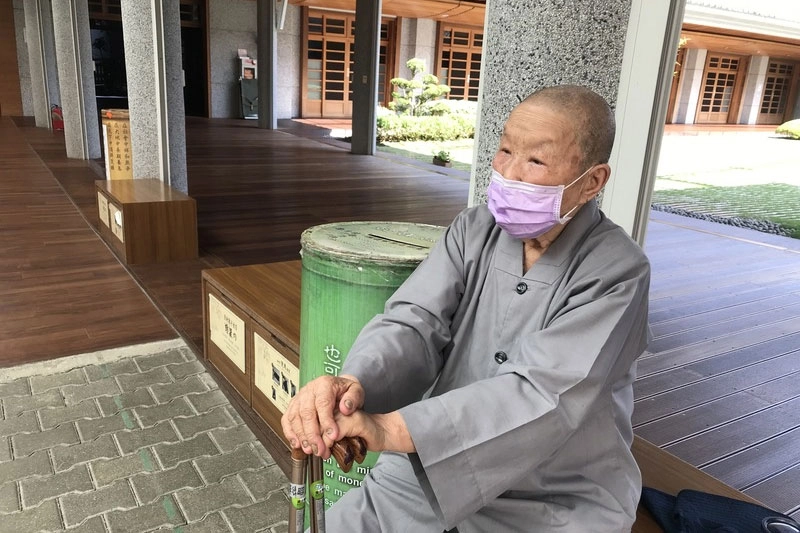
She held a special appreciation for the volunteers who staffed the service and security point at the Abode. In the early days, she was responsible for the main hall and could never sleep soundly, always alert to the slightest noise. The arrival of volunteer shifts allowed her to finally rest peacefully, a kindness she never forgot. She would often visit them, sharing stories of the Abode’s past and expressing her thanks.
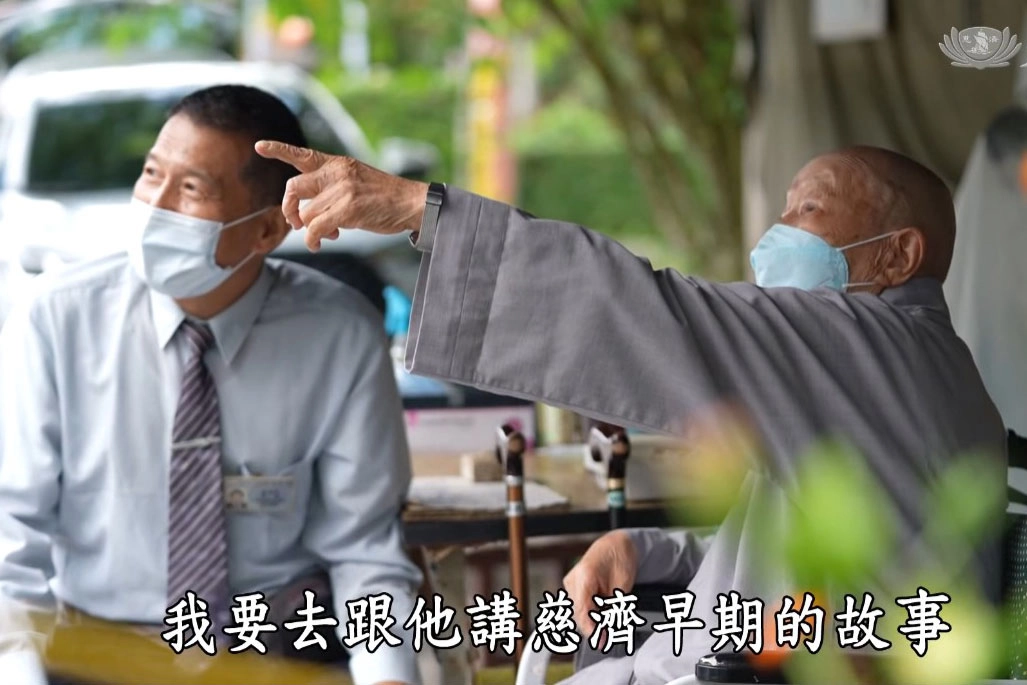
Her bond with her fellow pioneering monastics was profound. Every day at noon, she would wait for Master De Rong (德融師父) to arrive. Master De Zhao would hold out her palm so they could clap each other's hands repeatedly. This simple ritual was both a greeting and a way to check the strength in her hands, a quiet exchange of support between two people who had walked a long and difficult path together.
For the community at Jing Si Abode, Master De Zhao’s passing is not a moment of sorrow but one of profound gratitude and blessings. Her life was a living embodiment of the spirit of the Abode, a demonstration of how to dedicate one's life to a greater purpose. Her peaceful countenance in her final moments reflected the tranquility she had cultivated over a lifetime. As an enduring role model, her spirit will continue to guide and inspire all who follow in her footsteps.
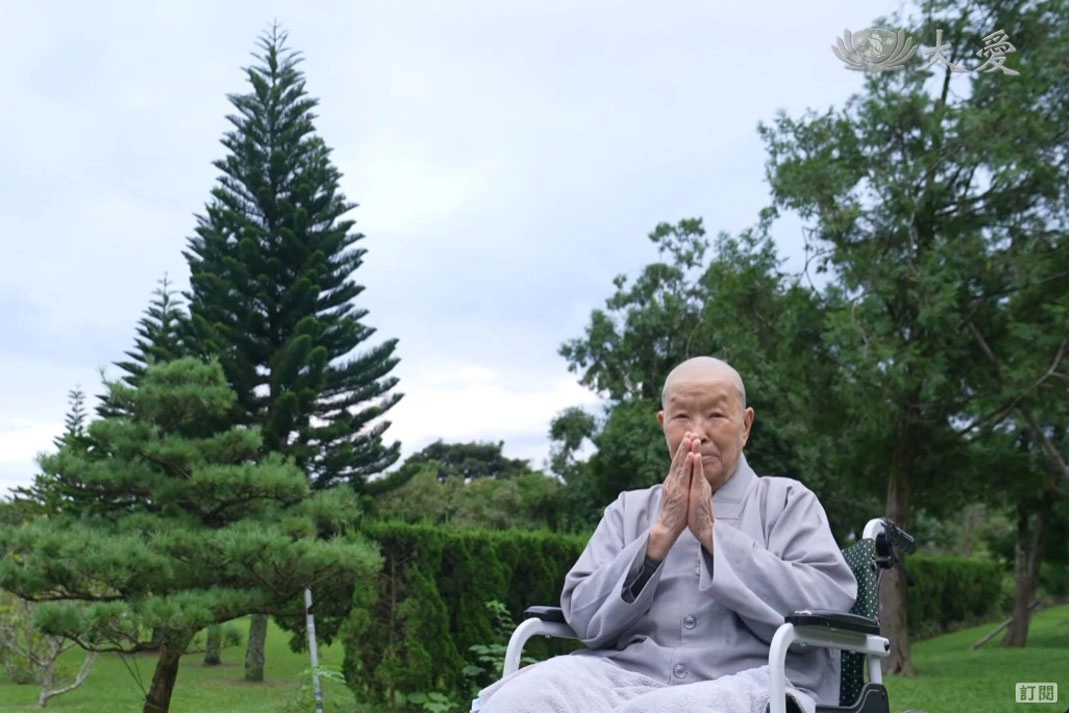
Written by Master De Qi (釋德棨)
Compiled by Chiung-Pei Lin (林瓊姵), Yu-Hsiu Yang (楊玉秀), Hsiu-Tuan Lai (賴秀緞)
Source: 緬懷二師兄 靜思家風以身示教



